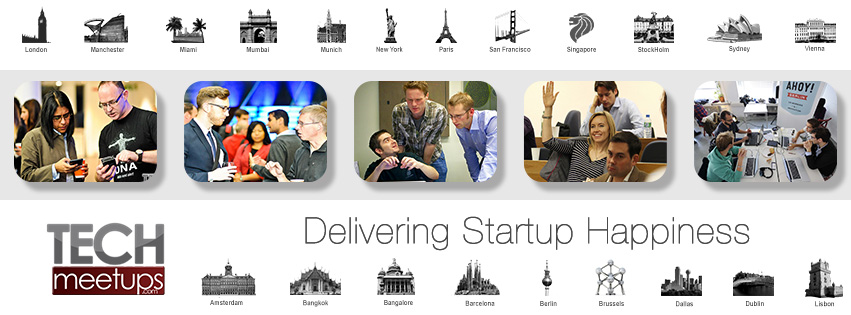The Entrepreneur Insiders network is an online community where the most thoughtful and influential people in America’s startup scene contribute answers to timely questions about entrepreneurship and careers. Today’s answer to the question, “What are some of the biggest misconceptions about startup life?” is written by Phil Schraeder, president and COO of GumGum.
Our culture mythologizes startups and the people who work at them. As a guy who works at a tech startup in the computer vision space, I appreciate the heroic narrative—some people get so excited when I tell them about my job—but I also think correctives to some of the misconceptions are overdue.
I’ll start with three:
Misconception 1: Startups have to be all-or-nothing work environments
We’ve all heard stories about startup slaves sleeping under their desks, Mountain Dew-chugging engineers on multi-day coding marathons, and desk-bound employees across all departments who never leave the office. It doesn’t have to be that way.
Yes, you have to be committed, and yes, you’re probably going to have to work long hours sometimes. That’s just the nature of the beast when building something new and trying to get traction for it. It has to be a labor of love. You have to be obsessed about the process and the end product.
But at GumGum, we’re also obsessed about work-life balance. When I started here, I was employee No. 11. Our CTO was the first employee and is still with us. Our head of data was employee No 2. Our SVP of international has been with the company for more than six years—same thing with our director of account management.
You can’t create a sustainable business if your team members can’t see a path to sustaining and enjoying a life outside of the office throughout the growth of the company. You want them to feel like they can be a part of the enterprise for many years, rather than get burned out.
We expect our managers, upon whom it is incumbent, to drive home that message, to set the tone and the example, and to integrate proper systems to help keep the team focused on the core of what they’re looking to accomplish.
Misconception 2: The best career path involves working for hot, well-known startups
Some people looking into startups approach things with a “hot or not” mentality. As in, “Is it going to benefit me in my career if I work for a company that’s unknown?” People who approach it that way might end up choosing a well-defined role at a more established “unicorn”-in-training vs. a potentially much more interesting, challenging, and ultimately rewarding position at a company that hasn’t already been crowned “the next big thing.”
The reality is that the bigger and more well-known a startup is, the less likely you’ll be able to get your hands dirty across projects and departments.
My first startup job was at a company called RealD, a 3D technology company, heading up the accounting team. As employee No. 15, I was able to get a lot of exposure to the decision-making of senior management as well as get heavily involved in strategy.
It was ultimately a great experience that led to a position working for the CFO at another startup—a situation that didn’t work out (the company shut down not long after I arrived). But in a way, it did work out, because I was able to see firsthand the pitfalls and gaps that doomed the operation; I learned from the failure, and that insight has served me well in my career.
Misconception 3: Startups are only for mavericks and risk-takers
Hollywood will tell you that startup founders are fly-by-the-seat-of-their-pants types who, by their very nature, are ready to risk it all. Sure, that’s true in some cases, but the reality is that at the core of successful startups, there’s discipline to counter chaos, contingency planning to address uncertainties, and process to balance improvisation.
And in that regard, it’s okay—even essential—if you ask certain questions when applying for a job at a startup, like: What’s your revenue? What’s your two-year plan? Are you seeing client retention? How supportive is the board?
Also, meet with many people as you can. When I first started talking with GumGum, I didn’t just meet with the founder, but also the account manager, the CTO, data chief, the marketing head—the whole team. I saw the balance of skill and personality of this bright and high-functioning team, which helped me decide that yes, I could really fit into this puzzle and help take it to the next level.
After all, to scale, startups need to leverage a lot of different personalities—even cautious types who ask the right questions and do their due diligence. Startups can’t live by a maverick mentality alone.
Great post by Phil Schraeder via http://fortune.com
How can Techmeetups.com help you ?
Delivering Startup Happines www.techmeetups.com
We help Startups through Events like Meetups, Workshops, Hackathons, Job Fairs, Events Promo and also have www.techstartupjobs.com to help you recruit your tech team.
Explore Techmeetups events in Berlin, Paris, London, Barcelona, Amsterdam, New York, Vienna, Lisbon, Madrid







